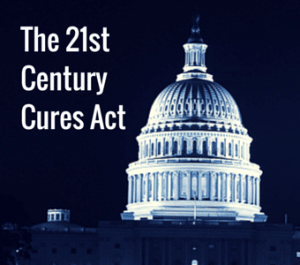 With just a handful of weeks remaining in his administration, President Obama recently signed into law a piece of legislation designed to improve many areas of healthcare: the 21st Century Cures Act.
With just a handful of weeks remaining in his administration, President Obama recently signed into law a piece of legislation designed to improve many areas of healthcare: the 21st Century Cures Act.
Although the Act is complex and broad in its scope, one aspect of it particularly noteworthy is the provision that speaks to the innovative and rapidly advancing field of regenerative medicine. This area of the Cures Act will allow new drugs or medical devices in that emerging field to expediently enter the market, without abandoning the need for the caution that will ensure public safety.
Act expands existing expedited approval pathway to include regenerative medicine drugs and devices
The amendment to the Federal Food, Drug and Cosmetic Act included in the Cures Act will give the FDA a great deal of latitude in approving regenerative medicine products via a compressed timetable (an accelerated route that currently exists for certain medical devices via the Expedited Access Pathway program [EAP]), as well as developing novel regenerative medicine strategies of its own.
The Agency has increasingly fielded complaints from stakeholders and individual patients about the need for quicker pathways from regenerative medicine product development to actual healthcare utilization. In part, this legislation will address that pressure for greater expediency.
The Act allows a narrowly-defined group of medical products to be categorized as “regenerative advanced therapy,” thereby earning “priority review” by the Agency. The product must align with the Act’s criteria for regenerative advanced therapy: “cell therapy, therapeutic tissue engineering products, human cell and tissue products, and combination products using any such therapies or products, except for those regulated solely under section 361 of the Public Health Service Act.”
Further, the product must fill a gap in the market and must be intended to treat a serious medical condition.
FDA will have reporting and guidance requirements under the Cures Act
In terms of FDA requirements associated with implementing the Act, the Agency will need to report the number of applications made for regenerative medicine drugs or devices overall, not limited to those granted approval through the new accelerated pathway.
The Act also stipulates that the FDA must release guidance detailing how the Agency plans to develop and execute the regenerative medical approval process.
Further, the FDA will be required to collaborate with the National Institute of Standards and Technology (NIST)—as well as relevant stakeholders—in developing definitions and standards for regenerative medicine drugs and devices. It is predicted that the resulting collaboratively-created standards will result in a positive shift in the relatively new field of regenerative medicine in that companies will be able to depend upon FDA-recognized criteria, as opposed to devising and substantiating their own (as is done at present). For this reason, this aspect of the Act has been enthusiastically received by medical industry insiders involved in regenerative medicine research and development.
FDA Commissioner Dr. Robert Califf had this to say in a blog post following President Obama’s signing of the Cures Act:
“An especially important element of this program is the creation of a research network and a public-private partnership to assist developers in generating definitive evidence about whether their proposed therapies indeed provide clinical benefits that are hoped for.”
FDA outgrows “REGROW” and finds balanced compromise in Cures
Earlier proposed pieces of legislation that addressed the need for expedited regenerative medicine procedures were controversial in that they achieved expediency partly by lowering the bar for approval standards. The Cures Act itself, though, upholds current efficacy and safety requirements while permitting the Agency to accelerate the approval process.
The so-called REGROW Bill (Reliable and Effective Growth for Regenerative Health Options that Improve Wellness) introduced in the Senate proposed that the FDA grant conditional approval to regenerative medical products in advance of effectiveness-trials results. Many saw allowing medications into the public’s hands prior to the sponsor’s attestation of the drug’s efficacy or safety as a failure to protect the public from the harm associated with ineffective or dangerous products.
The Cures Act, however, seeks to negotiate a balance between the public’s need to have access to lifesaving products in a timely manner and the need to be kept safe in the process.
For more information/questions regarding any legal matters, please email [email protected] or call 310.203.2800.